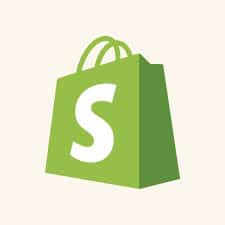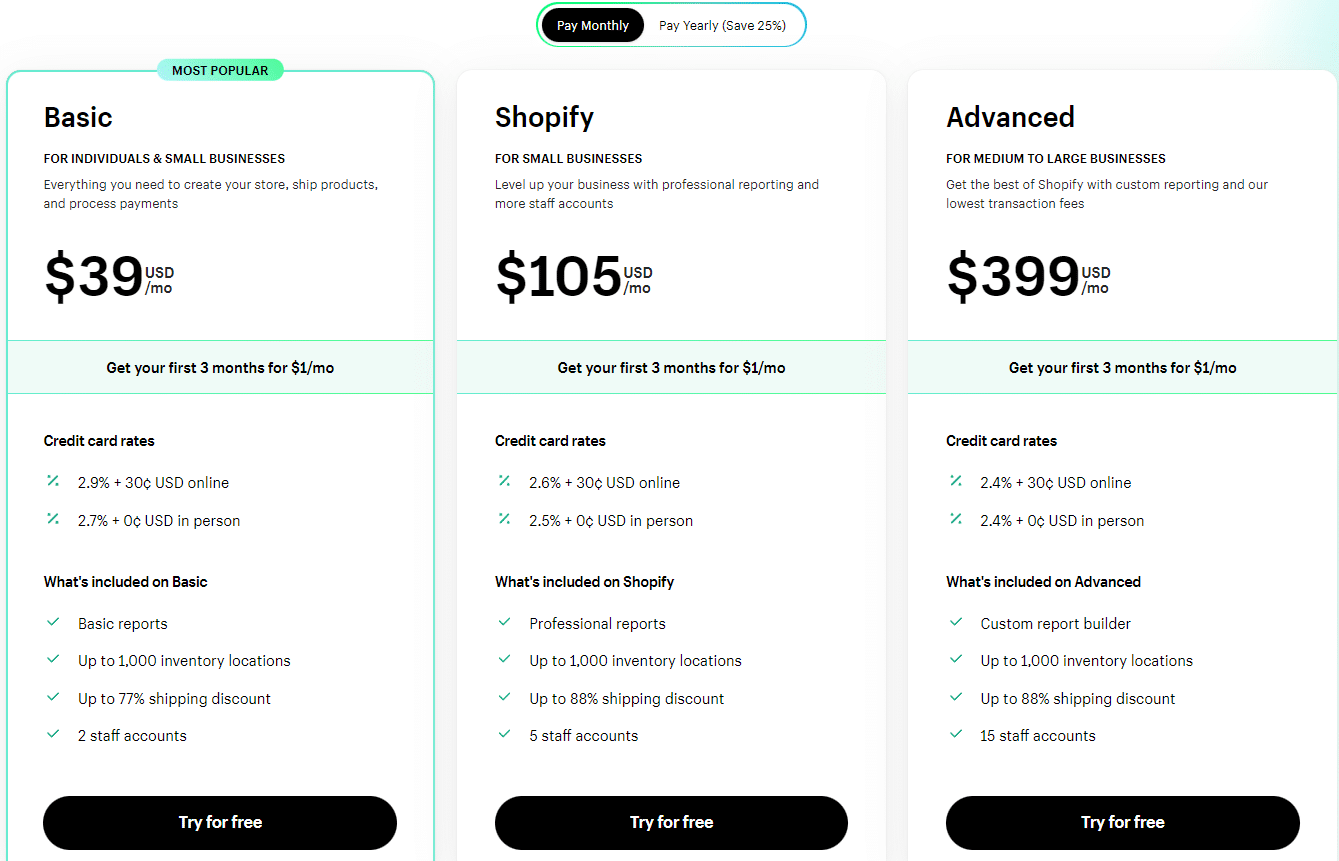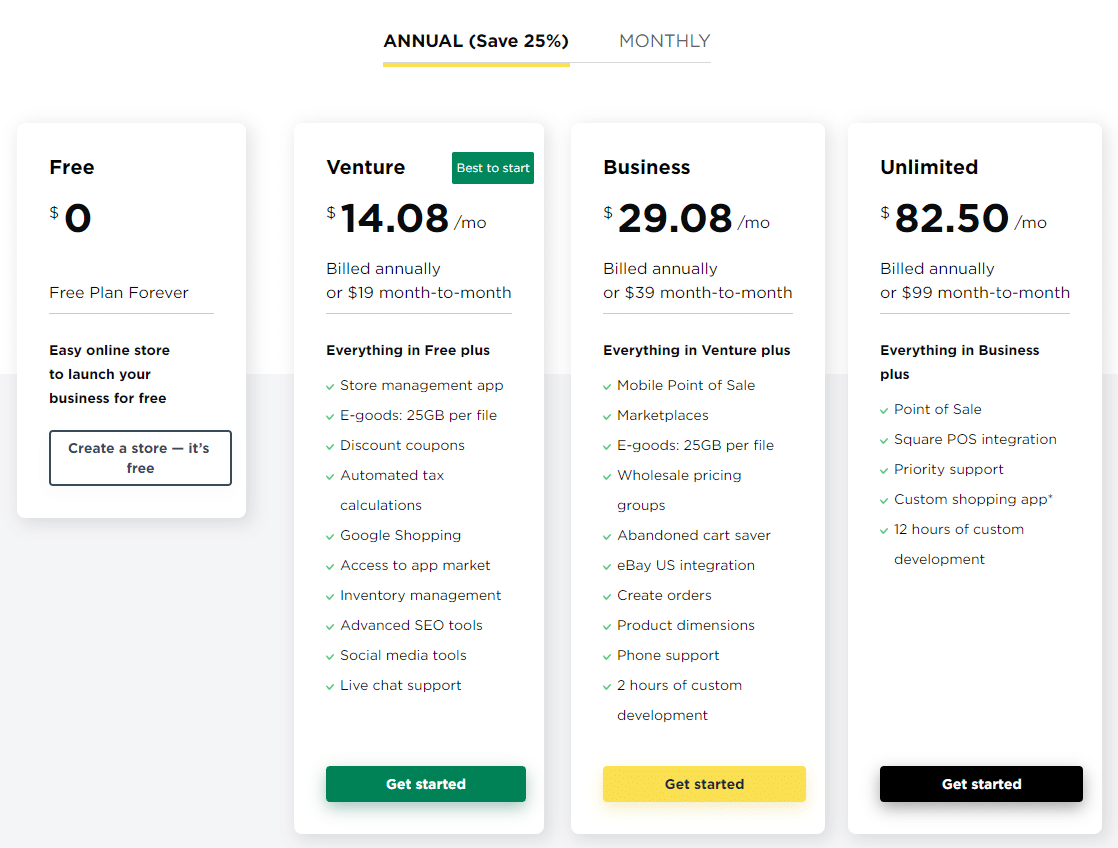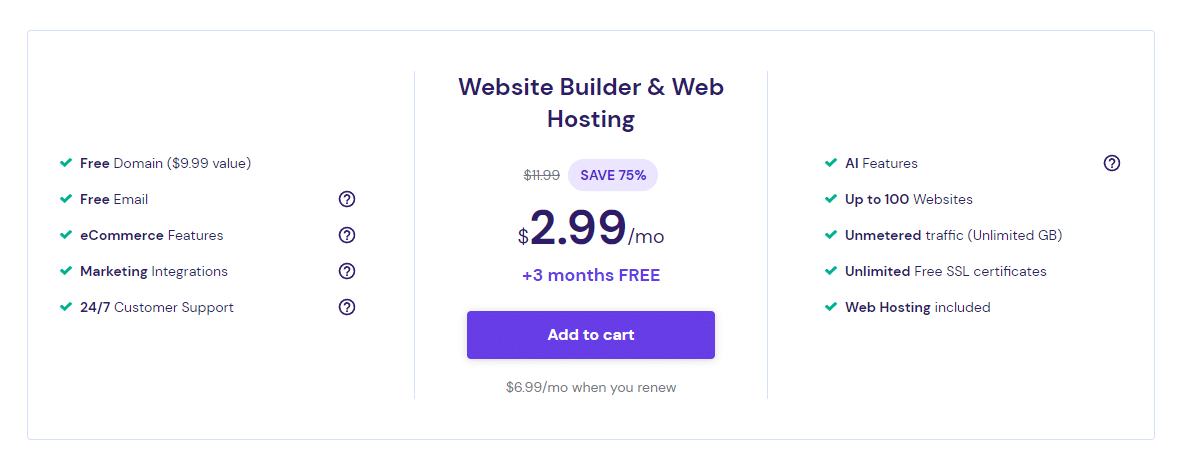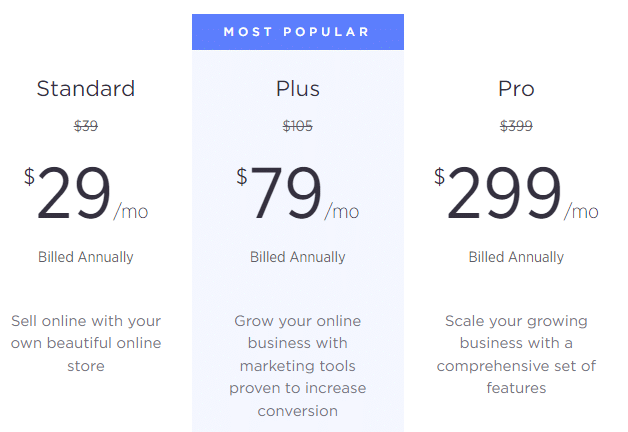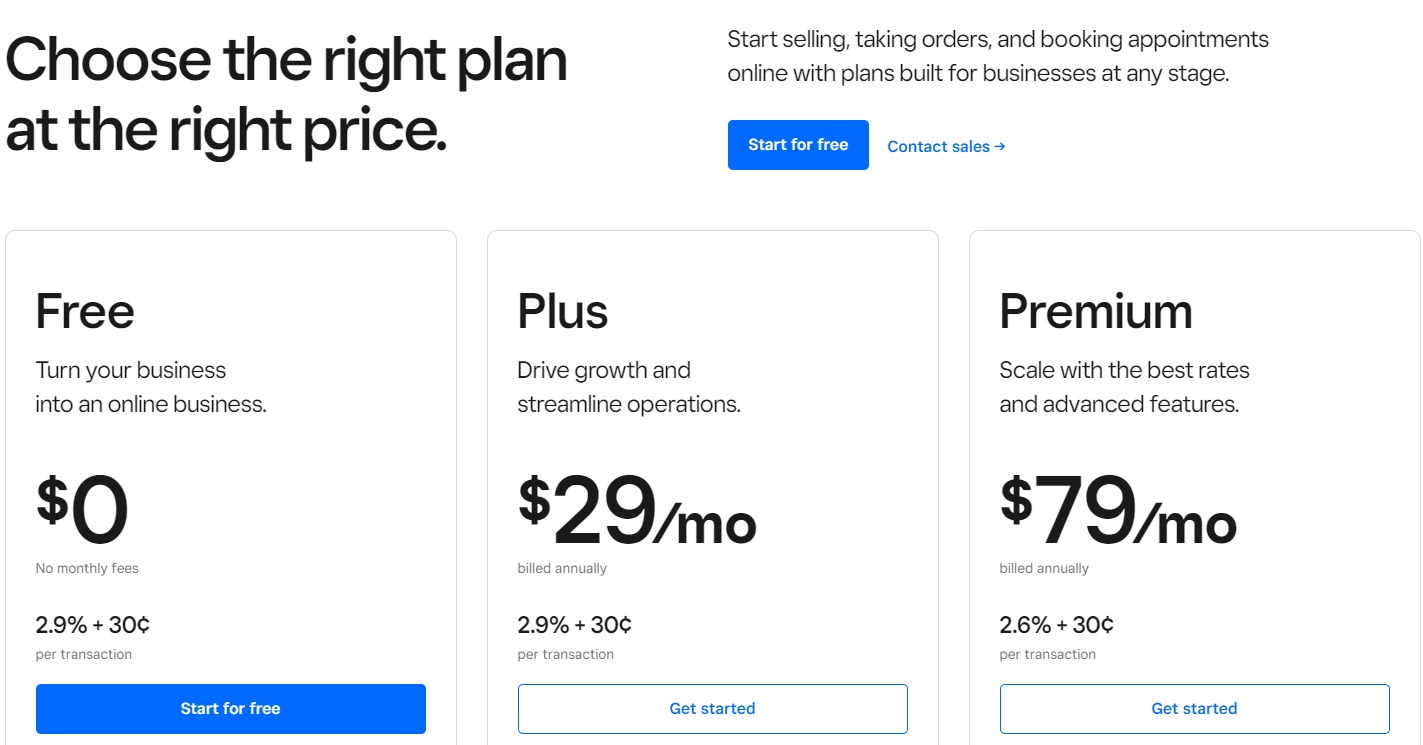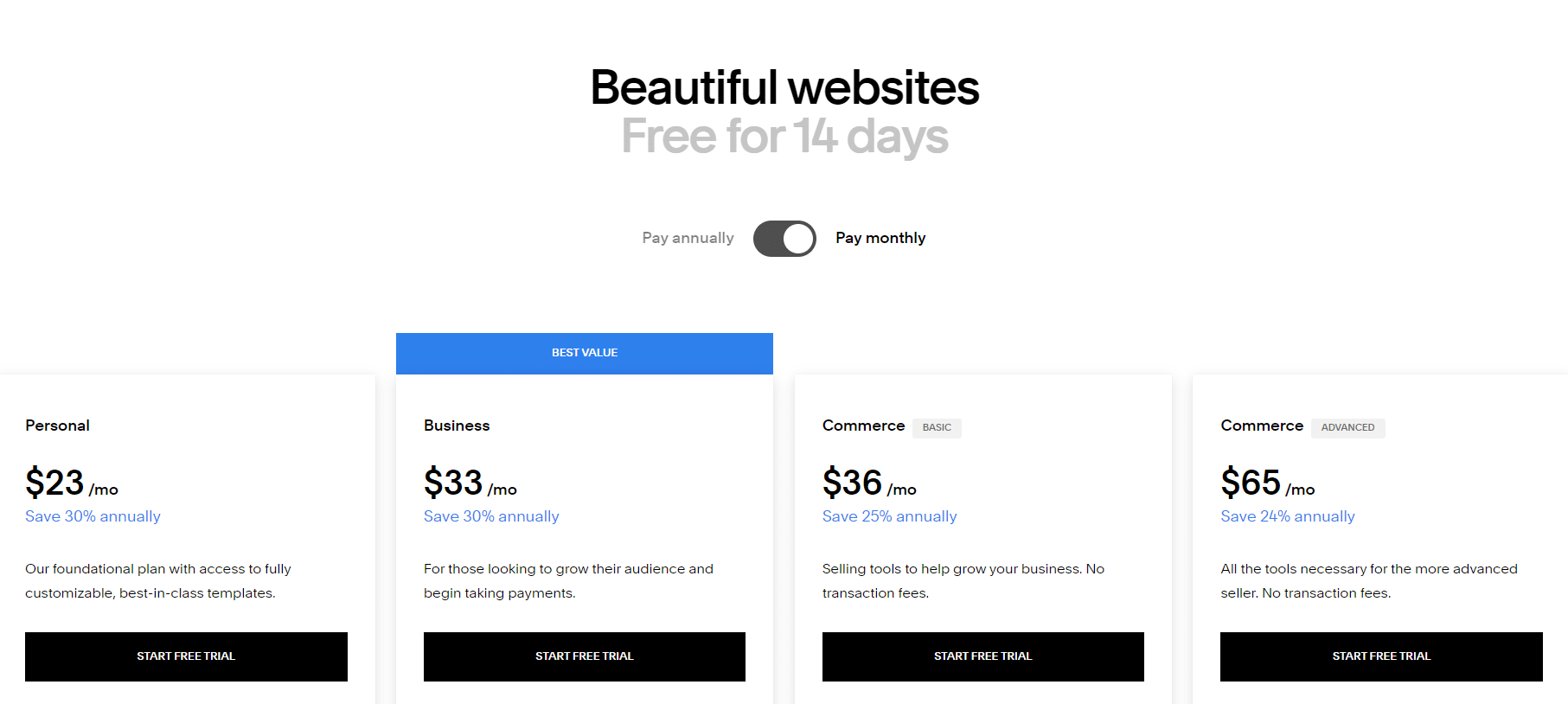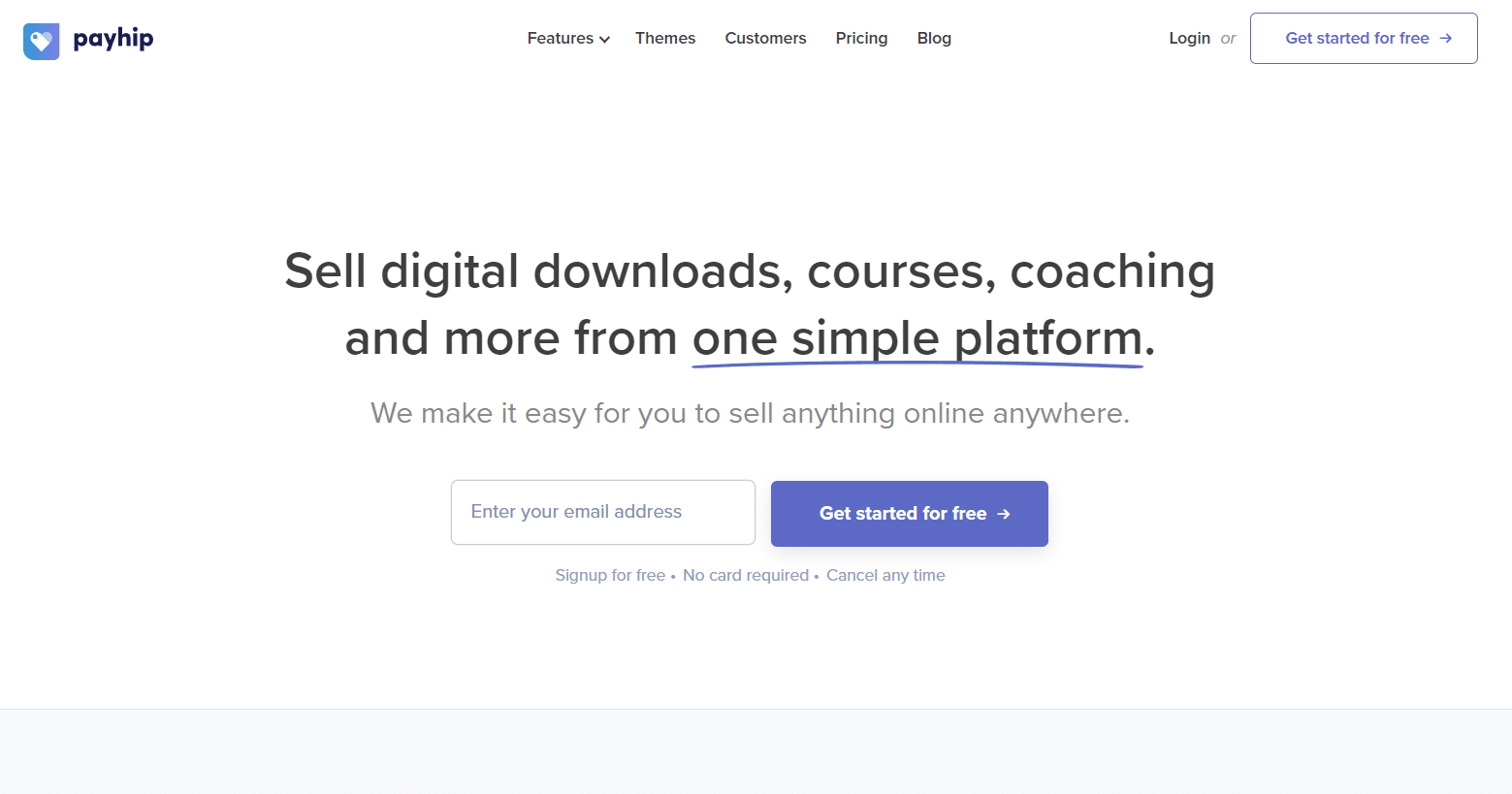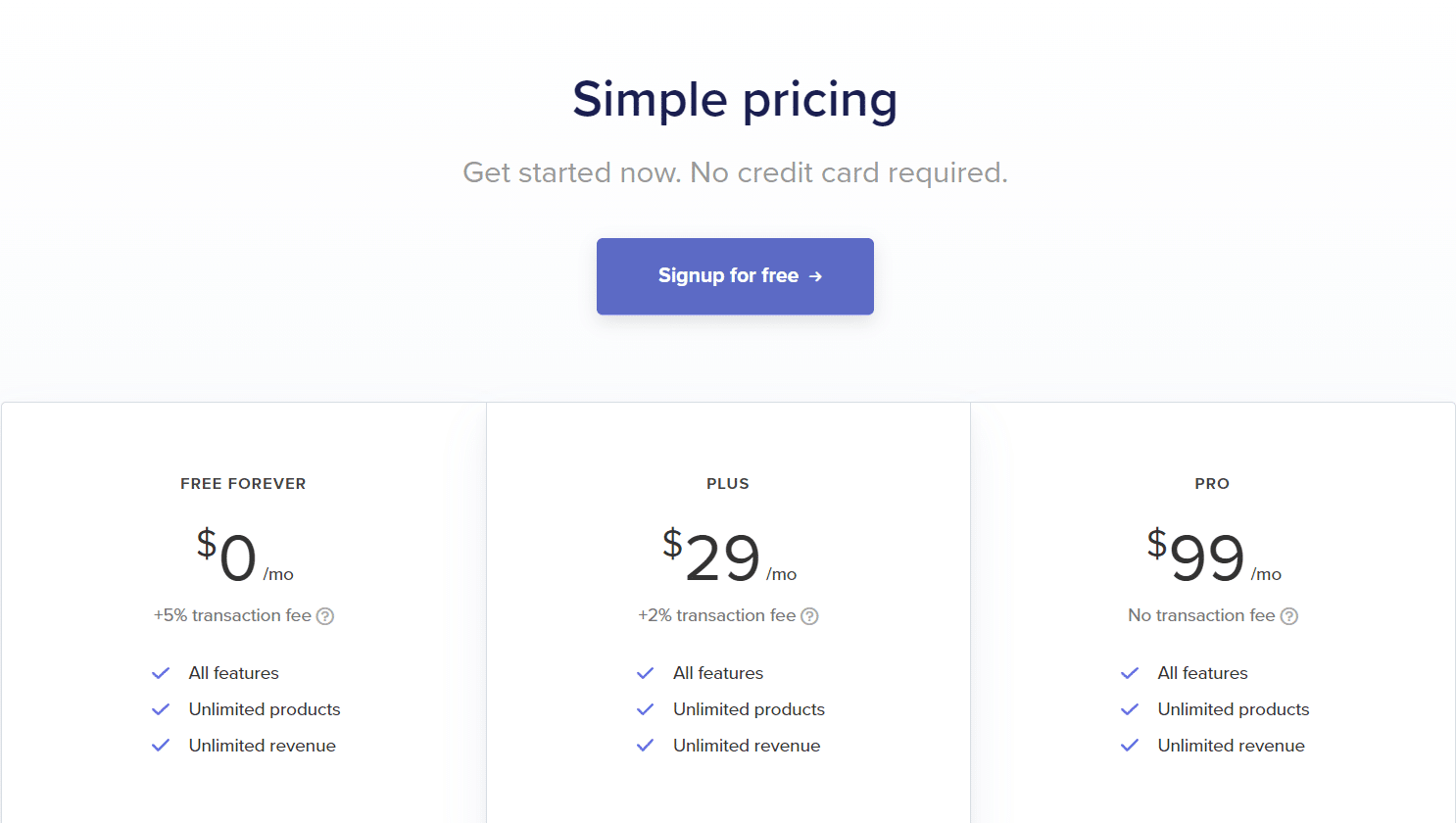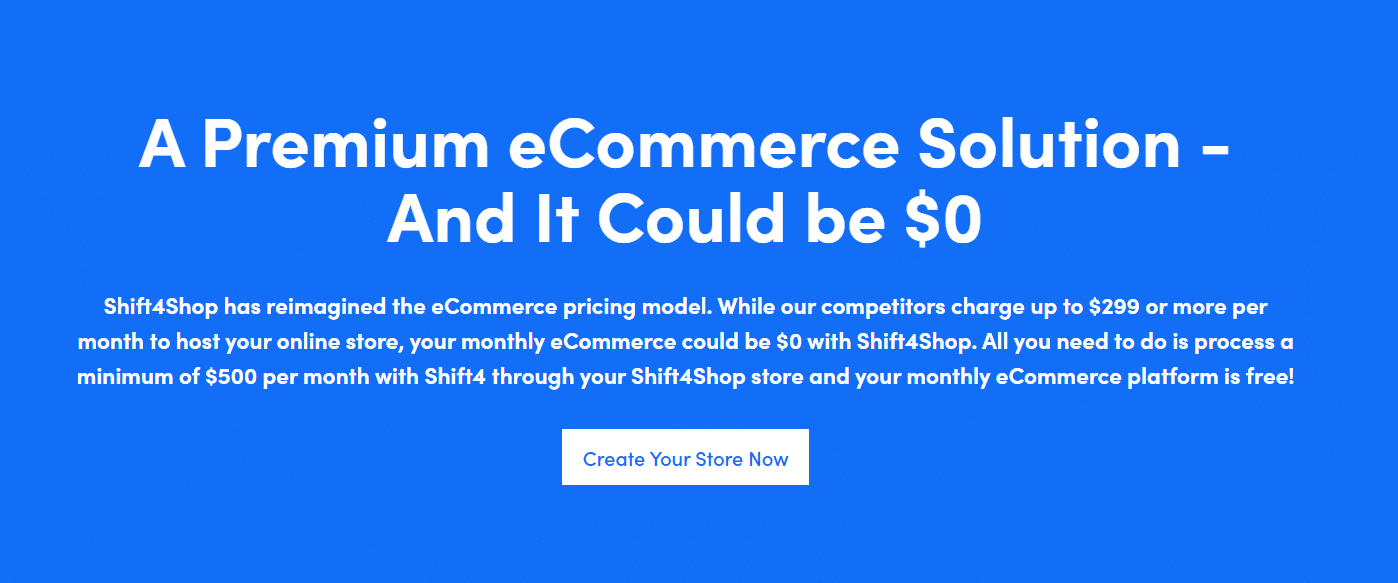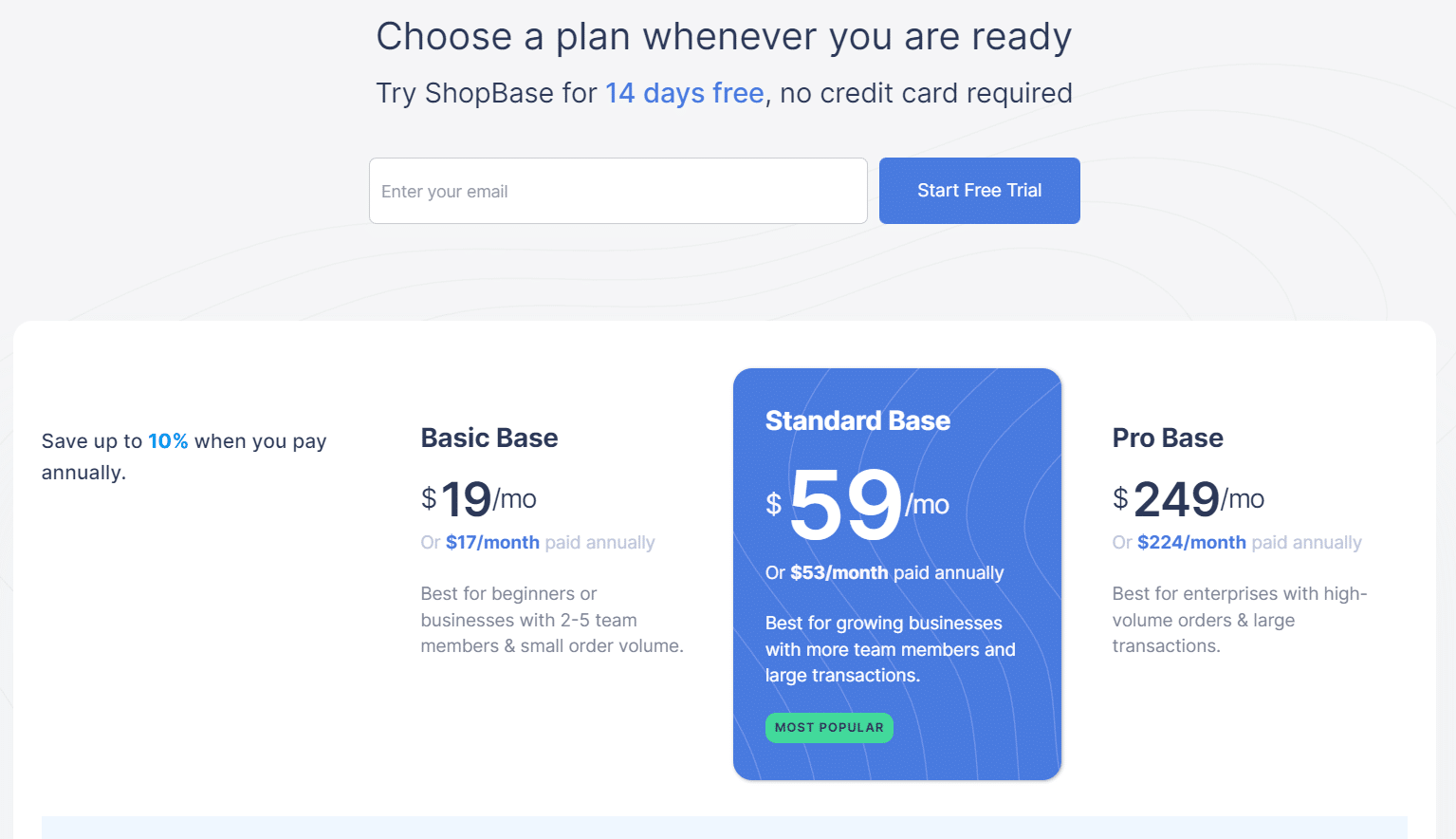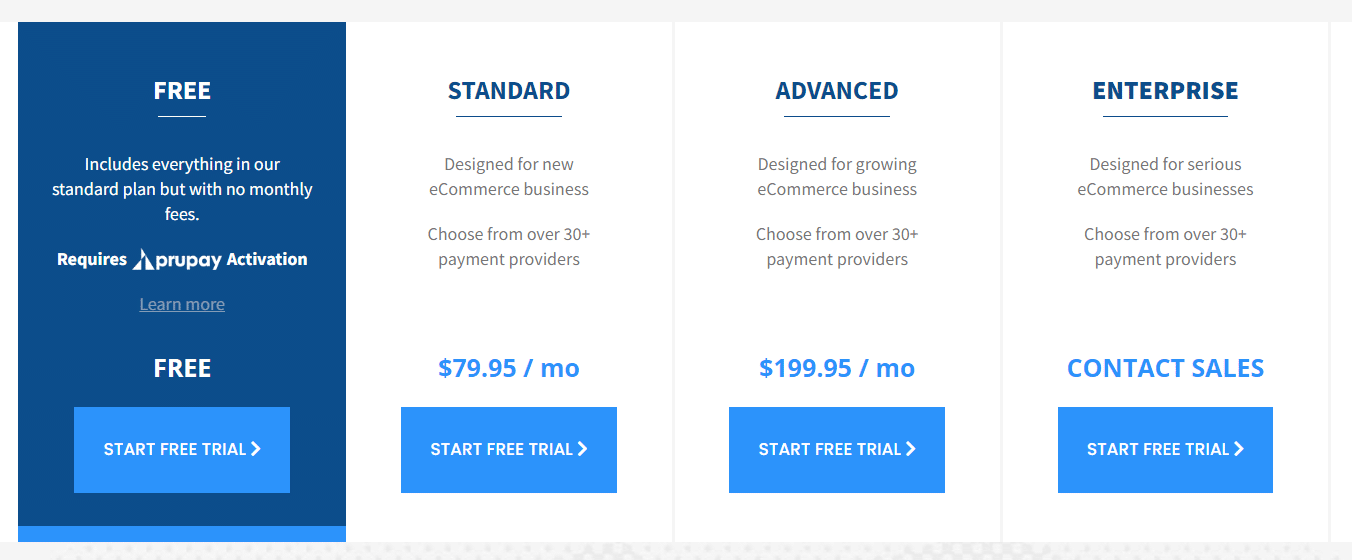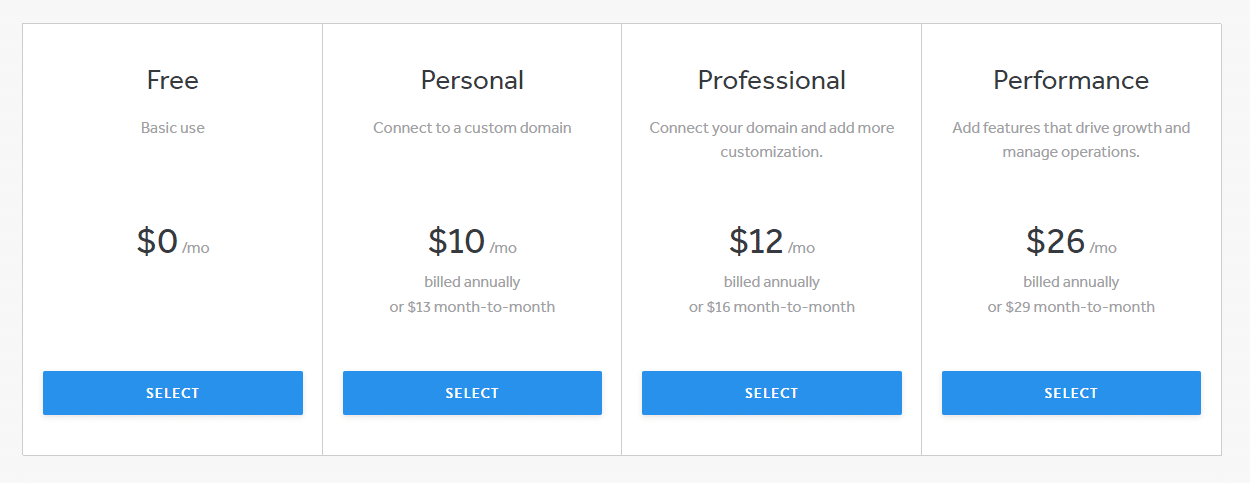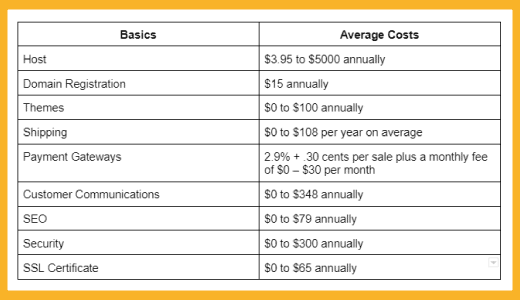What Is an Ecommerce Platform?
An ecommerce platform is a software solution that lets online sellers create websites and manage their businesses.
It’s the site where consumers can find your products, add them to a cart, and purchase them.
Ecommerce platforms have all the tools you need to carry out ecommerce business processes, including website building, inventory management, and payment setup.

How Does an Ecommerce Platform Benefit Small Businesses?

An online store provides small business owners with perks they won’t enjoy with a brick-and-mortar store.
Lower Operational Costs
Staff wages, rent for office space, and utilities are just some of the startup costs for physical stores.
You’ll have none of these concerns with an online store.
You’ll still have to invest in your ecommerce platform and pay specific fees, but the expenses are considerably lower than those you’d incur with a physical store.
Wider Business Reach
Creating an online store makes your products available to locations you can’t reach with a physical store.
An online store allows you to build your brand, grow your customer base, and boost your profits faster.
Ecommerce platforms offer automated delivery solutions that make it easy to facilitate shipping, track your products, and manage your inventory.
Customer and Marketing Insights
Many ecommerce platforms have analytics features that give valuable insight into your target market, customer behavior, product performance, and more.
The more information you have, the better you can plan your marketing strategy and boost your online sales.
24/7 Availability
Unlike a physical store, you can receive orders 24/7 when running your own online store.
Your software automates sales, preventing you from missing out on profit sales regardless of the time.
Factors to Consider When Choosing an Ecommerce Platform
Running your own online store involves complex processes. An ecommerce platform can simplify them.
User-Friendly Interface
Not all small business owners are tech-savvy, and keeping the average online shopper in mind is essential, even if you are.
Your ecommerce platform should have an intuitive and user-friendly interface to ensure a smooth experience on both the seller’s and customer’s ends.
Design and Customization Options

Check the available designs and free themes an ecommerce platform offers.
A more comprehensive range of options means more freedom to create your store’s appearance.
Consider your long-term vision for your business too. After all, you might want to update the design of your store as it grows.
You’ll want a platform that balances design freedom with convenient pre-made template offerings.
Efficient Store and Data Management System
An ecommerce platform should have an efficient store management system with easy-to-integrate add-ons, plug-ins, and optimization tools.
You should be able to track inventory and process orders easily.
Data management and a consolidation system are also other critical considerations.
A top-of-the-line ecommerce platform lets you collect and store data, and integrates with analytics tools or services.
Variety of Payment Processing Options
Online shoppers would only be able to pay for their purchases through the system available on your site.
Ecommerce platforms use a payment gateway to process payments and move money from customers’ accounts to yours.

This gateway limits the payment methods and currencies your store can accept.
Checking the payment avenues your platform supports and exploring third-party services you can integrate for more payment opportunities are essential.
Data Security
Ensuring the security of customer data safe is a top priority for any retail business.
Your ecommerce site should have security standards and SSL certificates.
It should offer secure payment processing options, and set additional measures to protect against fraud and data breaches.
Adequate Technical Support
Technical issues will always arise when dealing with ecommerce software for small businesses, no matter how much you try to keep everything under control.
Fortunately, most ecommerce platforms today offer an abundance of documentation to provide technical know-how.
They should have an extensive library of guides and FAQs to help you find a solution without contacting a support team.
Some also offer 24/7 assistance if you can’t resolve the issue alone.
Promotion and Marketing Opportunities
Most ecommerce platforms offer small business owners opportunities and marketing tools to promote their online stores—the key is finding one that matches your ecommerce marketing strategy.
Since SEO is a driving force for promoting your store and products, your platform should be SEO-friendly.
Experts also predict that mobile commerce will generate more than half of US retail sales by 2025.
With this in mind, your ecommerce platform should be mobile-friendly.
What Are the Types of Ecommerce Platforms?
On-Site Platform

With an on-site or on-premise ecommerce platform, you host the software on your own server and manage it with an IT staff.
This approach lets you access the platform’s source code, and exercise absolute control over security and performance.
You can optimize and modify your ecommerce site, and make it as unique as you want.
However, this type of platform comes with a hefty price tag.
You’ll have to pay licensing fees and additional hardware to back up your data.
You’ll also need to employ administrators to monitor and maintain your servers.
This ecommerce platform isn’t the best choice for a small business owner starting an online business with minimal costs.
SaaS (Software as a Service)

The SaaS platform is cloud-based ecommerce software available to users through the internet.
Instead of installing it on your computer, you simply access the site through your web browser.
An SaaS platform eliminates many of the headaches of an on-site platform.
As ecommerce solutions go, this platform is excellent for small businesses because it offers functionality and security without the immense technical responsibility.
It also has relatively low costs and tons of support services.
A SaaS platform is the way to go if you want to get your website up and running without a significant investment.
The downside is you can’t access the source code, limiting your control and flexibility.
Customizing your online store also depends on the themes and templates available on the platform.
Open-Source

An open-source platform is similar to an SaaS platform, and the software is just as easy to access.
Unlike SaaS software, an open-source platform lets you access and modify the source code to suit your needs.
You’ll have complete control over the design and operational choices that best match your online store.
However, you’ll also carry the full responsibility of maintaining site security.
You must ensure your ecommerce site complies with PCI standards and has safety measures against hackers.
Open-source platforms are free to download and use, making them the more economical option at first glance.
However, costs can add up when considering other fees involved in using open-source platforms, such as:
- Licensing fees
- Hosting fees
- Web developer
- Maintenance costs
- Security and PCI compliance costs
- Apps, extensions, and integrations with other systems
Frequently Asked Questions (FAQs)
How Do I Create a Small Business Ecommerce Website?
Here’s how to create your ecommerce website once you’re ready to sell online.
- Choose your ecommerce Platform.
- Register a domain name.
- Find a developer.
- Select an ecommerce theme.
- Customize your ecommerce template.
- Add your products.
- Set up options for payments.
- Fix your shipping settings.
- Do a test or preview and publish your online store.
How Do the Ecommerce Platform Needs of Small Businesses Differ From Large Enterprises?
Enterprise-level businesses have a solid brand identity they want to maintain.
Their primary goal is to get more revenue, so they choose ecommerce platforms that can provide faster performance and handle large transaction volumes.
On the other hand, small businesses have a different focus—getting their business up and running at a minimal cost.
The ideal ecommerce site for small businesses is an affordable and budget-friendly one they can use, even without technical knowledge.
It should offer robust support, convenient marketing features, and business management tools to guide beginners.
What Mistakes Do Businesses Make With Ecommerce Platforms?
Many ecommerce businesses select the wrong platform, leading to a host of issues regarding customization, security, payment gateways, search engine optimization, and other problems.
Others choose based on their budget instead of focusing on their specific needs.
Avoid the same mistakes by determining your goals, requirements, and online selling strategies, and find the platform that can support them.
The Bottom Line
With the advent of ecommerce platforms, small business owners no longer have to shell out a considerable investment to open and operate a physical store.
Even if you already have a physical store, an ecommerce platform is still essential in today’s market.
Like choosing a location for your physical store, choosing the best ecommerce platform for your business requires careful consideration.
I hope my guide has made it easier for you to decide which ecommerce website for small business best suits your needs.
If you still don’t know what to sell, my list of 20 ecommerce business ideas can help you.

